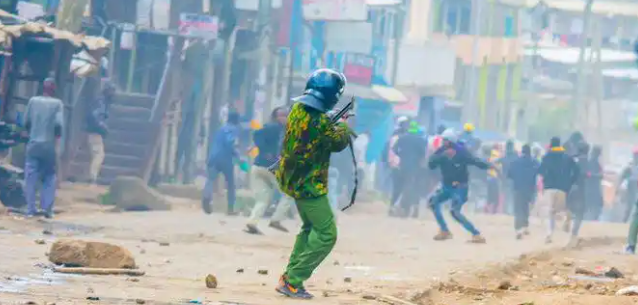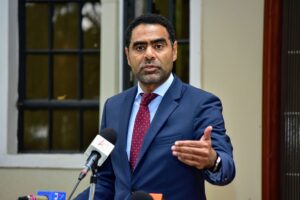The High Court has suspended the recent ban imposed by the police on protests within Nairobi’s Central Business District (CBD).
This ruling comes amid a turbulent period marked by three weeks of intense protests against the recently proposed finance bill, which has sparked significant unrest across the nation.
The protests have tragically resulted in loss of life, numerous injuries, and widespread looting of businesses, heightening tensions between citizens and authorities.
The police had justified the ban on protests within the Nairobi CBD by citing escalating security concerns.
The police argued that the protests posed a significant threat to public safety and property, especially given the increasingly chaotic nature of the demonstrations.
Compounding the challenges faced by law enforcement is the fact that many of the protesters, primarily from Generation Z, have declared themselves leaderless.
This decentralization of leadership has made it exceedingly difficult for the police to engage in effective communication and coordination with the demonstrators.
In response to these developments, the High Court’s suspension of the police ban is seen as a significant affirmation of the constitutional right to peaceful assembly and protest.
The court emphasized the importance of balancing security concerns with the fundamental freedoms enshrined in the constitution, underscoring that any restrictions on such rights must be justified and proportionate.
The protests, driven by widespread dissatisfaction with the finance bill, have seen participation from a diverse cross-section of society.
Many citizens are protesting against what they perceive to be an unfair financial burden imposed by the bill, which included new taxes and increased costs of living.
The unrest has not only been concentrated in Nairobi but has also spread to other parts of the country, reflecting the broad-based nature of the discontent.
The leaderless nature of the protests has been both a strength and a challenge for the movement.
On one hand, it has allowed for a more organic and widespread participation, free from the influence of traditional political structures.
On the other hand, the lack of clear leadership has complicated efforts to organize the protests effectively and to engage in dialogue with authorities.
This has led to clashes with police, who have struggled to manage the decentralized and often spontaneous nature of the demonstrations.
Business owners in the Nairobi CBD and other affected areas have expressed grave concerns over the impact of the protests.
Many have reported significant losses due to looting and destruction of property, adding to the economic strain already felt by many in the wake of the COVID-19 pandemic.
The business community has called for a resolution that addresses the grievances of the protesters while also ensuring the safety and security of businesses and their employees.
In light of the High Court’s decision, there is now an urgent need for dialogue between the government, law enforcement, and the protestors.
Constructive engagement is essential to address the underlying issues driving the protests and to find a way forward that respects the rights of all parties involved.
The ruling serves as a reminder of the delicate balance that must be maintained in a democratic society between maintaining public order and upholding fundamental freedoms.
The High Court’s decision has set the stage for a critical juncture in Kenya’s democratic journey.
The path forward will require careful navigation, with a focus on protecting the rights of citizens while ensuring the stability and security of the nation.





















Add Comment